

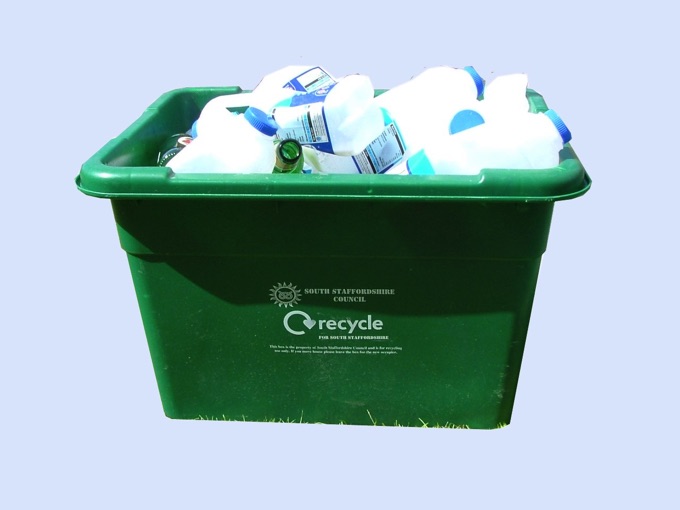
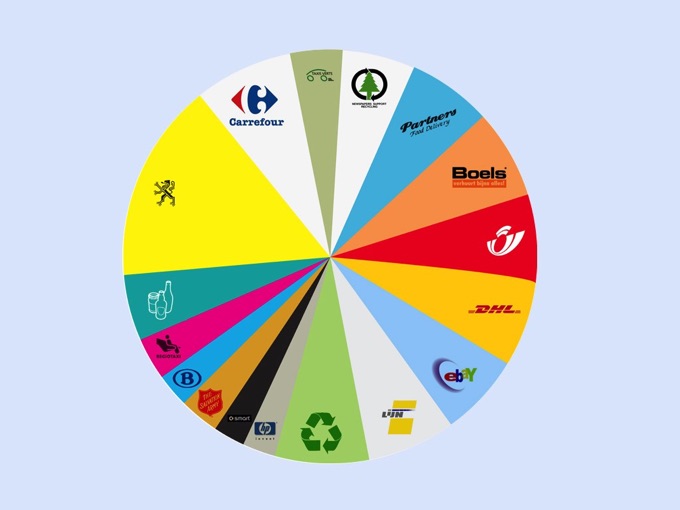



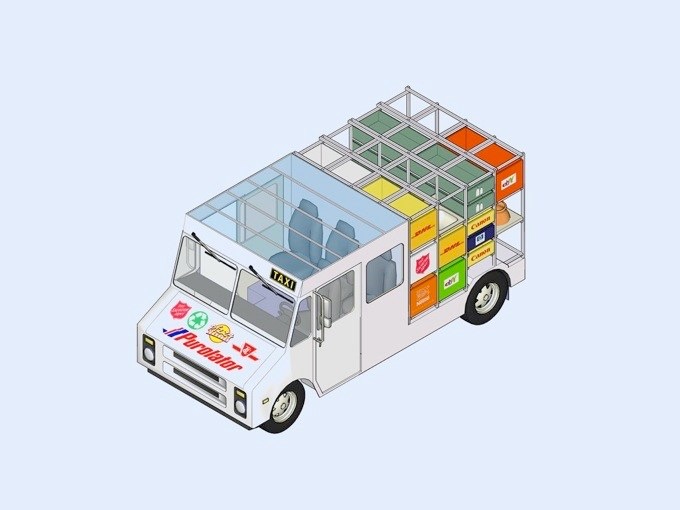
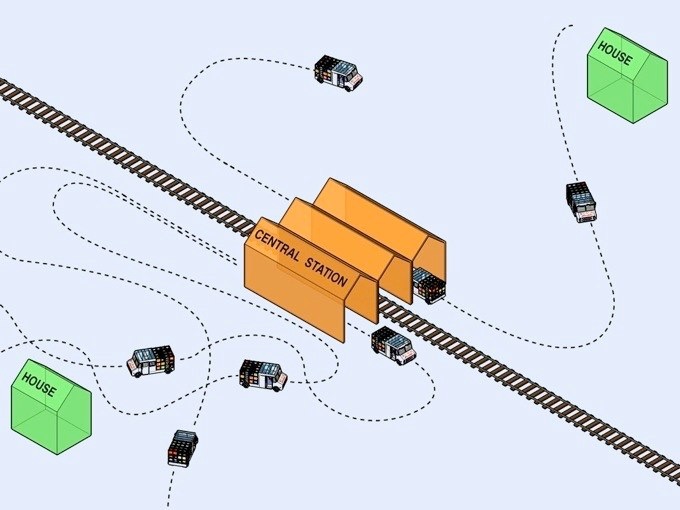

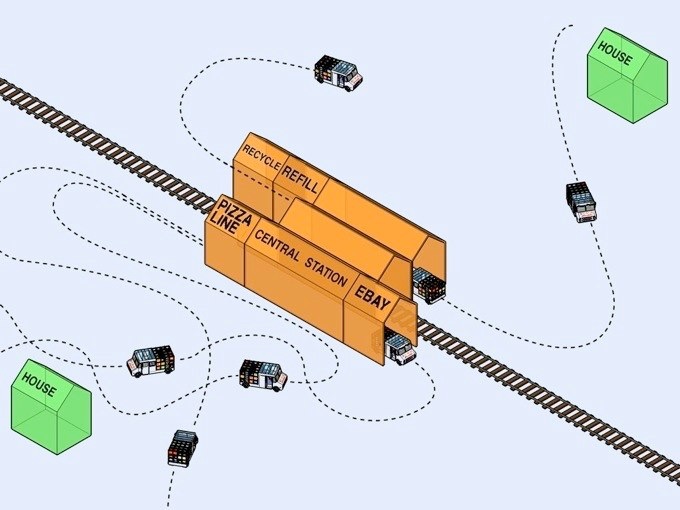
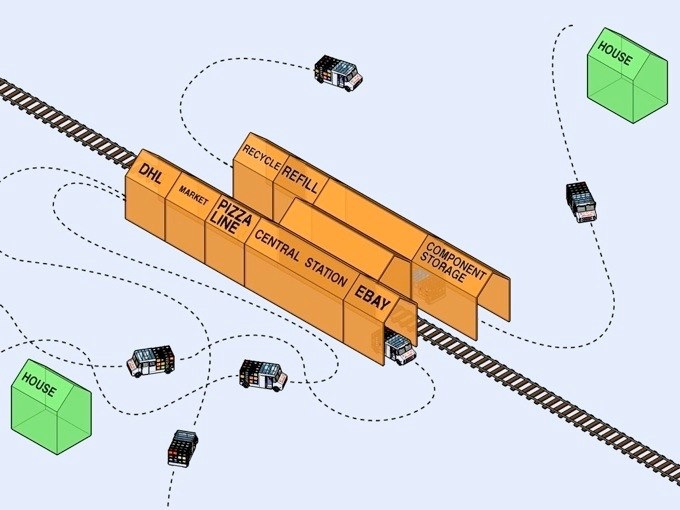






Concepts /
CargoCabs/
Can we synchronize
distribution and recollection?
The project envisions a transportation model that balances distribution and recollection in order to support closed product cycles and guarantee a constant service flow in urban areas.
(scroll down for more info)
FRONT
transport of people
BACK
transport of goods
The model proposes a fleet of identical shuttle busses ...
... that connect individual houses with central transfer hubs ...
... while picking up and delivering both goods and people.
Driving from the station it delivers rented or purchased goods at home while dropping off people (at their homes).
The shuttles don’t have fixed routes or schedules, but operate within a fixed zone ...
... much like worker bees circling around their queen bee.
Central nodes facilitate their logistical services ...
... by expanding towards logistical hubs and service centers.
The citizen now has an easy connection from and to the central station
The citizen can now perform multiple tasks in one go.
The system will allow governments to generate jobs while reducing costs.
The system will allow the manufacturer to recollect used goods and packages in a more efficient way.
And since costs are shared by all, rides are cheaper for all.
People might even pay a ride with the garbage they dispose ...
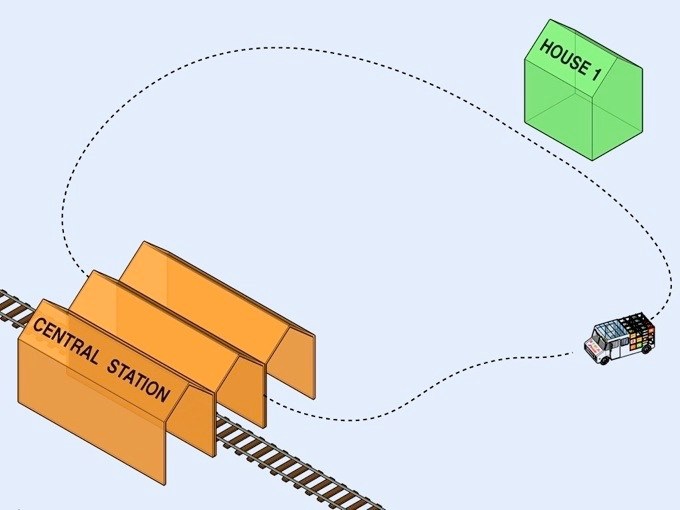
overview of a HUB
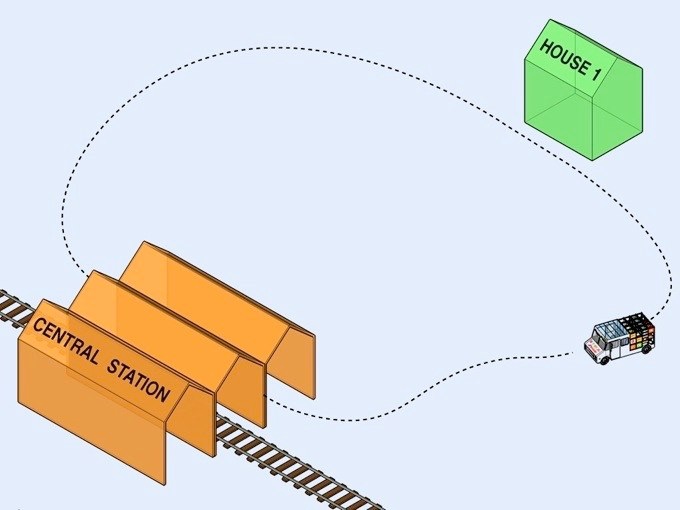
close-up of a hub
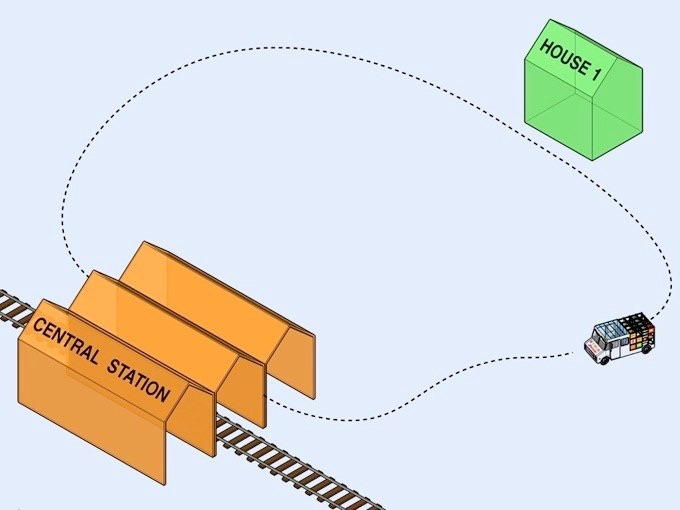
version 1.0
version 2.0
version 2.1
version 3.0
version 4.0
version 4.1
Driving towards the station it picks up used goods as well as people
(that want to catch a ride to the station).

DELIVERY
PICK-UP
FRONT
transport of people
BACK
transport of goods


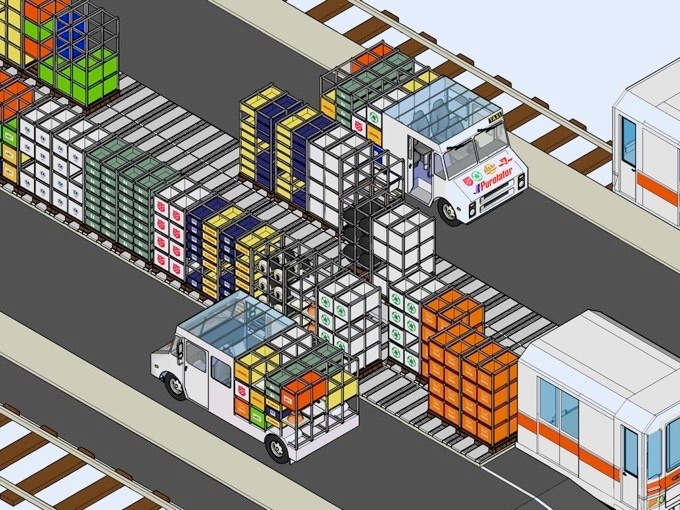



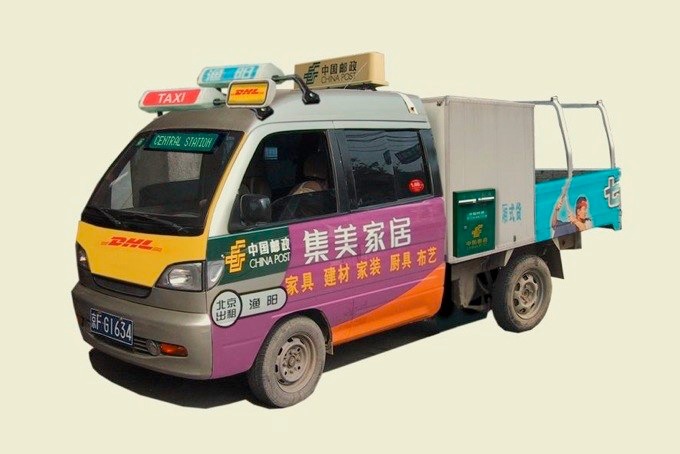








CATCH A RIDE
(to or from the station)
DISPOSE WASTE
(from home)
DO GROCERY SHOPPING
(at the station)
MORE JOBS
(in the service industry)
REDUCED COSTS
(in public transport and waste management )
FACTORY
END USER


WASTE AS CURRENCY
Concept
Circulation
Advantages
The HUB
Versions

Credits
Concept & graphics
Brussels - 2005 / 2008
Thomas Lommée



